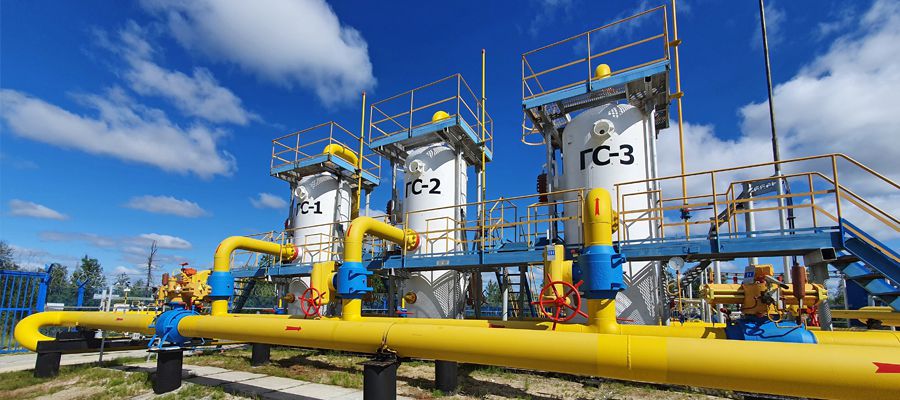The energy cap is a massive financial commitment by the Government.
- Friday, October 14, 2022
 The governments policy to cap the price of energy will have a marked impact on the cost of heating homes this winter. The cap will result in an average heating bill of about £2,500 but without the cap families would have been facing bills of an average of £5,000. This policy in its self is counter inflationary and because of it, UK inflation is now expected to peak at a lower level which will reduce pressure on the Bank of England over interest rate rises.
The governments policy to cap the price of energy will have a marked impact on the cost of heating homes this winter. The cap will result in an average heating bill of about £2,500 but without the cap families would have been facing bills of an average of £5,000. This policy in its self is counter inflationary and because of it, UK inflation is now expected to peak at a lower level which will reduce pressure on the Bank of England over interest rate rises.
The energy cap policy is a massive financial commitment by the Government. The policy could cost up to £150bn or 5% of GDP. The full impact will not be known as the future price of gas is market lead. The current trend is that gas prices are falling. The cost to the Treasury will ultimately depend upon the price and supply of gas as well as weather conditions and demand. Despite the open-ended commitment made by the government, markets were very happy with the policy as it was essential to households and business.
The current price of UK Natural Gas is £285 thm while the 10-year average has been around £75 thm. Prices peaked at £635 thm at the end of August and have fallen back since then despite the restrictions on gas supply from Russia into Europe.
The planning for gas storage to see Britain and Europe through this winter is essential. Europe has been building up storage of gas supplies ready for this winters demand and Britain has been acting as a bridge for US gas imports into Europe. As Britain has so little storage capacity of our own we have been exporting gas stocks to Europe. European stocks are well ahead of target with 90% of full capacity already reached. However, storage capacity is only 25% of the winter usage so ongoing supply is needed.
Centrica obtained regulatory approval for the re-opening of the Rough gas storage facility off the Yorkshire coast back in August but the site is still not factored into the National Grid’s winter outlook for UK gas supply. The Rough site could at full capacity store sufficient gas to meet winter demand for 10 days which is 70% of the UK storage capacity. Rough is now not likely to help this winter but with a long-term agreement yet to be finalised between Centrica and the government it could support future winter needs.
The closure of Rough in 2017 in order to save costs has left the UK with little storage capacity and more reliant upon global gas markets. The decision to close Rough must now be seen as reckless.
The National Grid has warned of the possibility of blackouts this winter if Britain cannot secure sufficient gas to power gas fired power stations. National Grids base case is that Britain has sufficient electricity supply to get through the winter but this outlook is based upon imports from the continent being undisturbed. The reality is that our success in getting through the winter without electricity rationing will largely depend upon the weather. If temperatures fall, we may be facing black outs. We can all remember back to February 2018 when supplies ran dangerously low as the Beast from the East battered Britain with extreme weather conditions.
To ensure Britain can maintain reliable supplies of gas, the government is seeking to sign a 20-year gas supply deal with Norway. Norway is the UK largest supplier of natural gas but this is being challenged by demand from other countries. It is perhaps this deal that is giving Liz Truss some confidence over blackouts this winter.
The German government has acted in the same way as the UK government in capping gas prices for households and business. The cost of this scheme is thought to be around £176bn. However, this policy has come under criticism from other EU countries as not being European or acting as one. Germany is Europe’s best source of stored gas due to its large storage capacity.
The recent indefinite shut down of the Nord Stream 1 gas pipeline by Gazprom was supposed to be the Kremlins big weapon against the West. Interestingly since the shut down gas and electricity prices have fallen from €335 mwh in August to €156 mwh now. A fall of 53%. The Russian share of EU gas imports has also fallen from 40% to just 9% since the state of the Ukrainian war.
Confidence is growing in Europe that with 90% of gas storage facilities now full that the continent can get through this winter without a severe hit to the economy. The ending of the war between Russia and Ukraine will be very welcome but will not change the need for Europe to invest in reliable clean energy and move away from over dependence upon Russia. The post war long-term implications are that Russia energy exports will be severely reduced impacting the Russian economy.

Chris Davies
Chartered Financial AdviserChris is a Chartered Independent Financial Adviser and leads the investment team.
About Estate Capital
Financial Services
Our Contacts
7 Uplands Crescent,
Swansea, South Wales,
SA2 0PA.
Tel: 01792 477763
